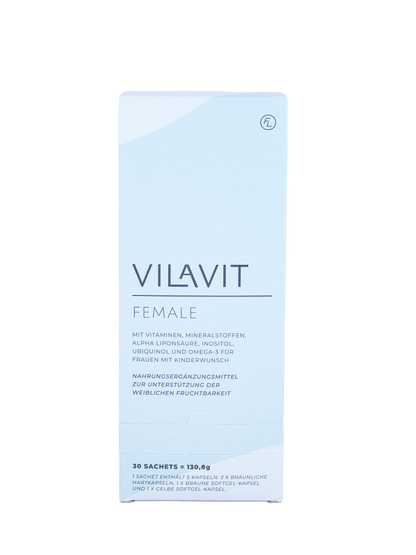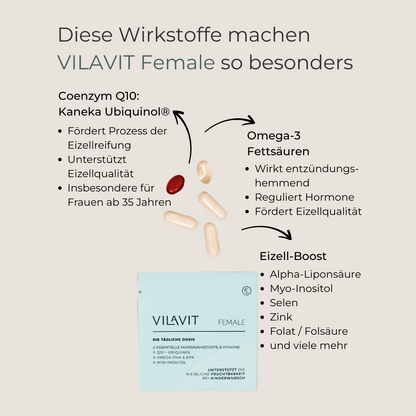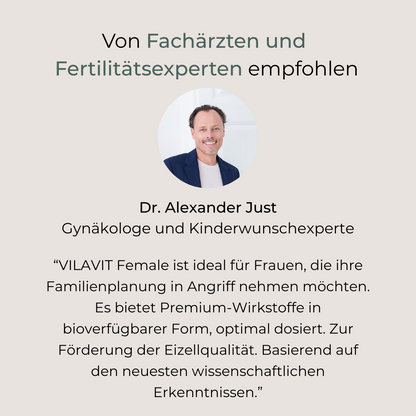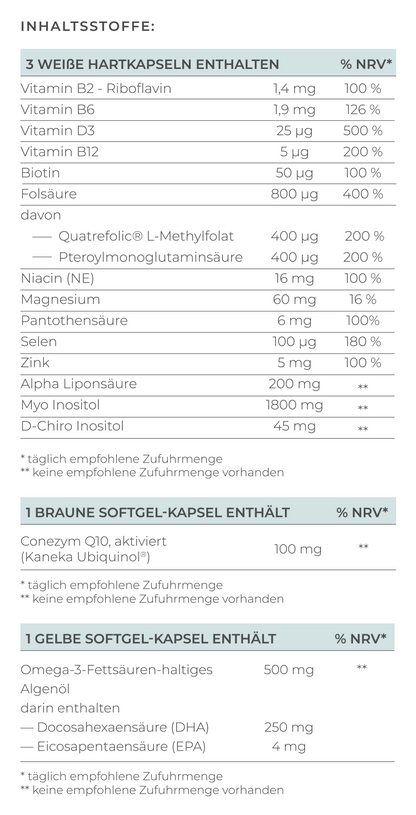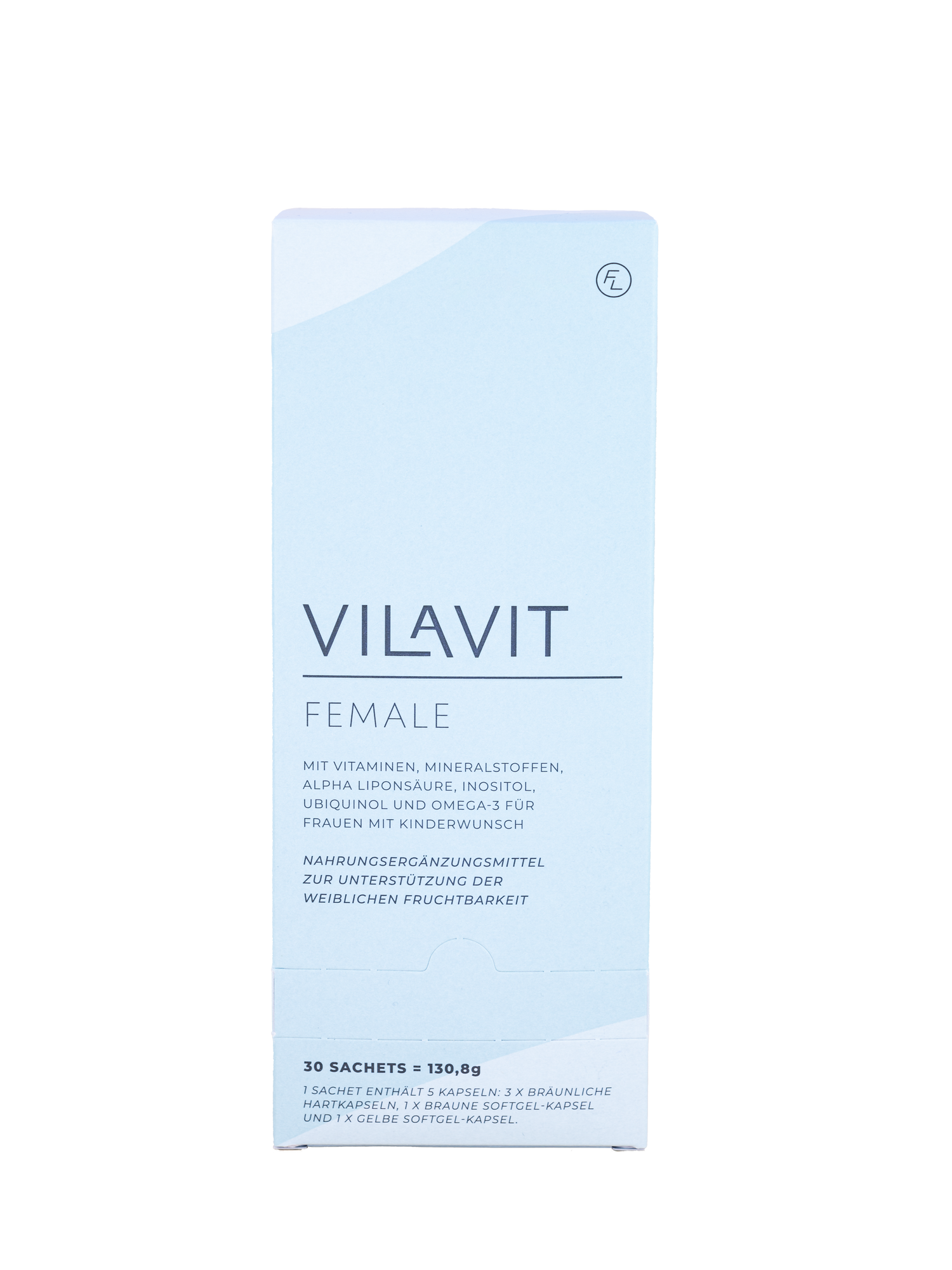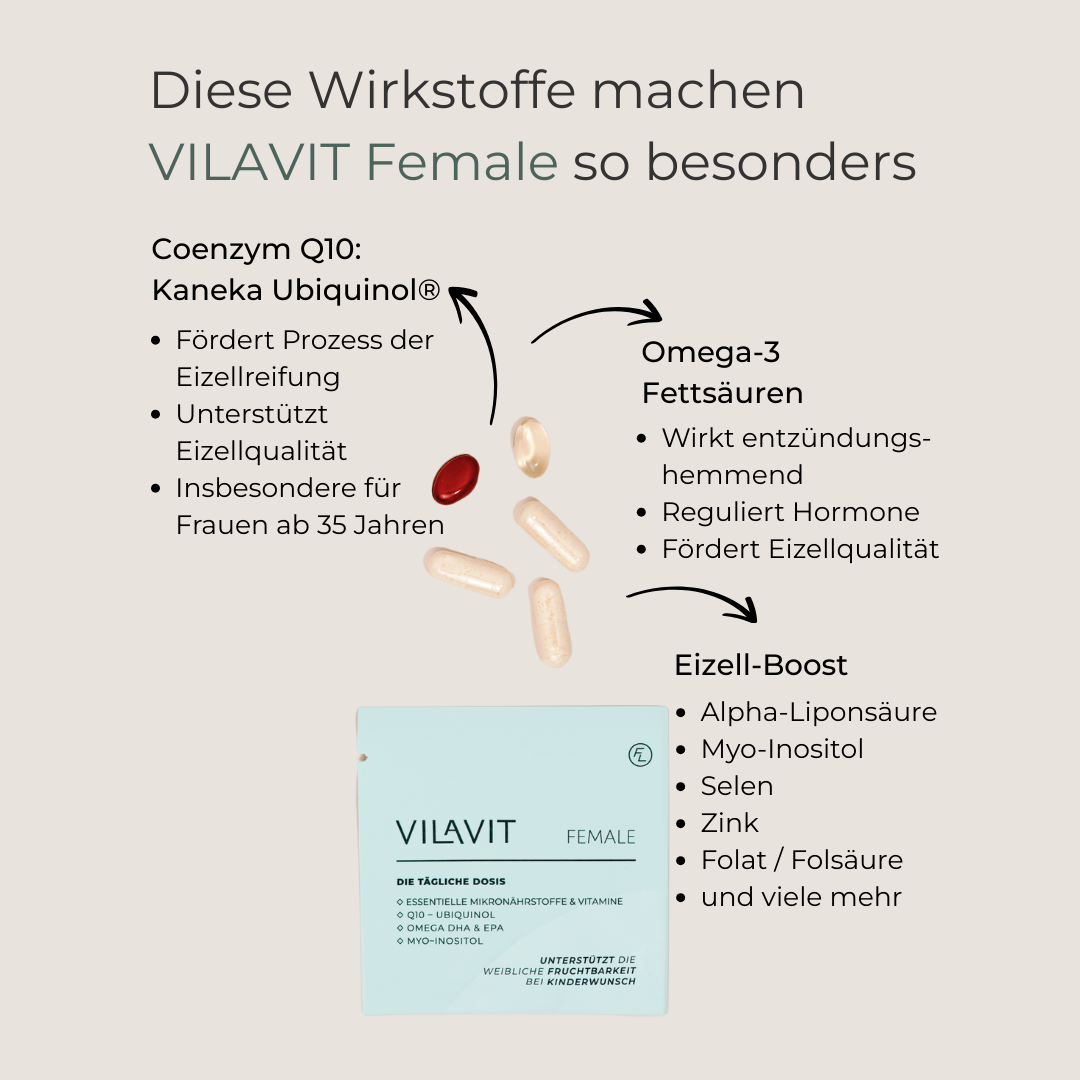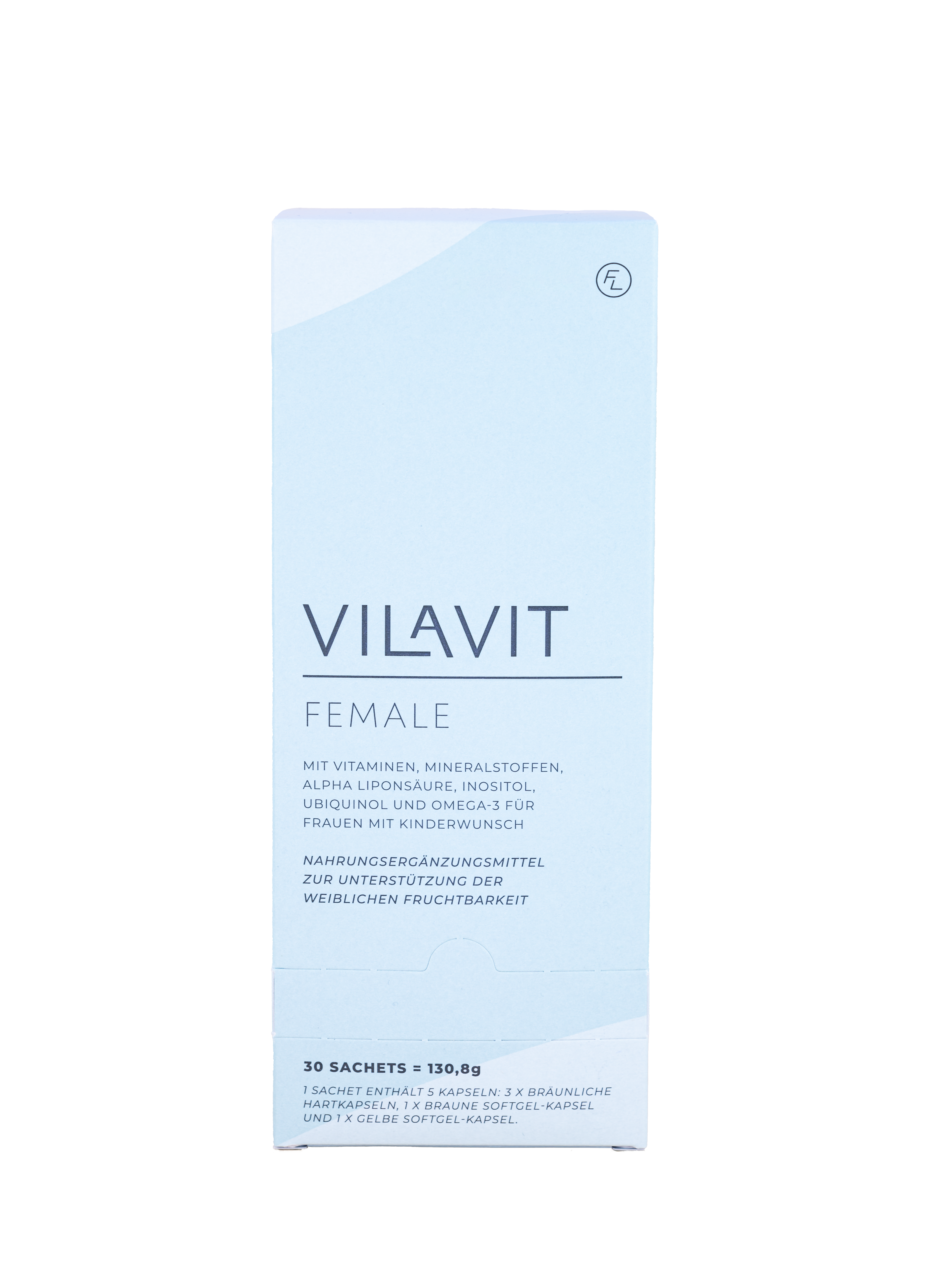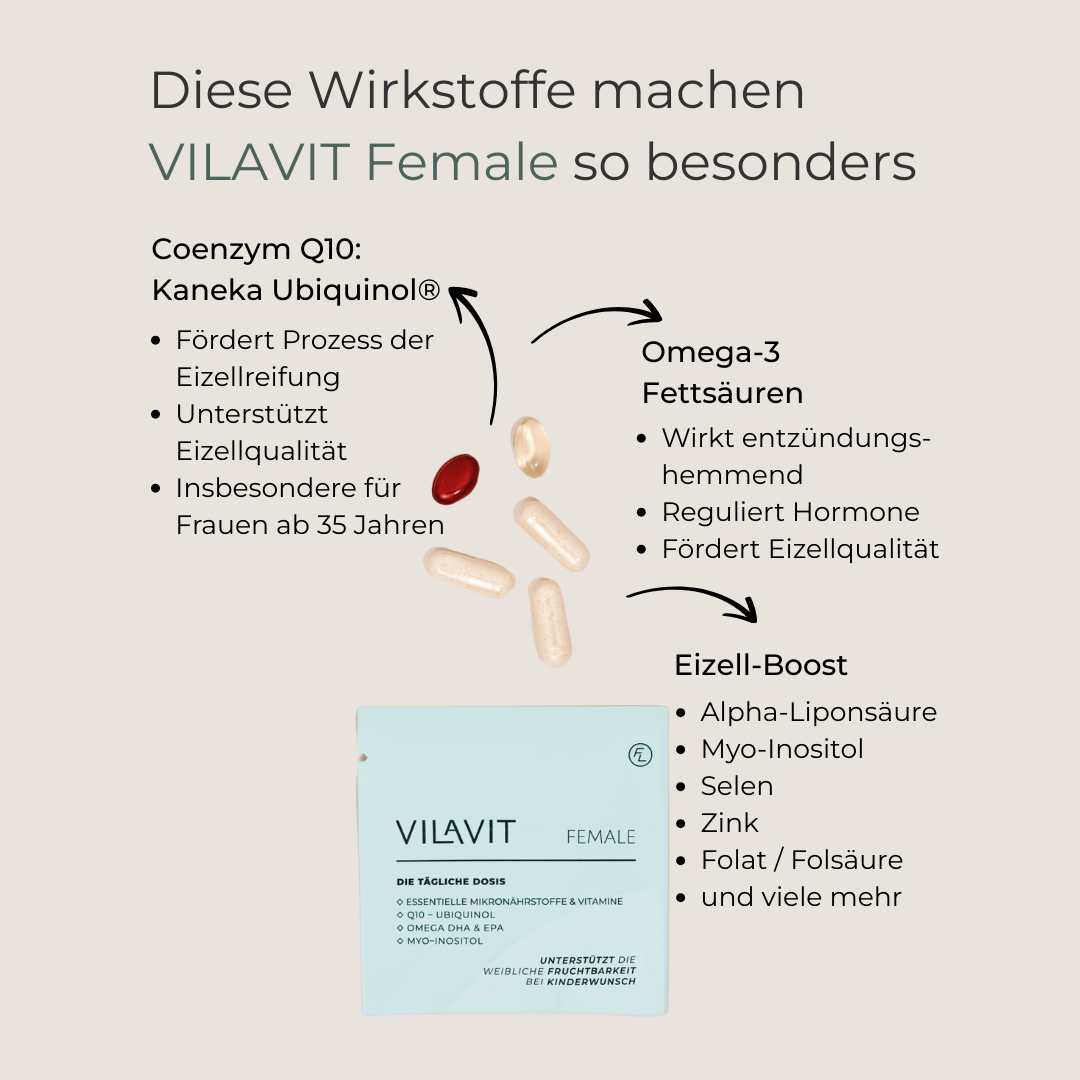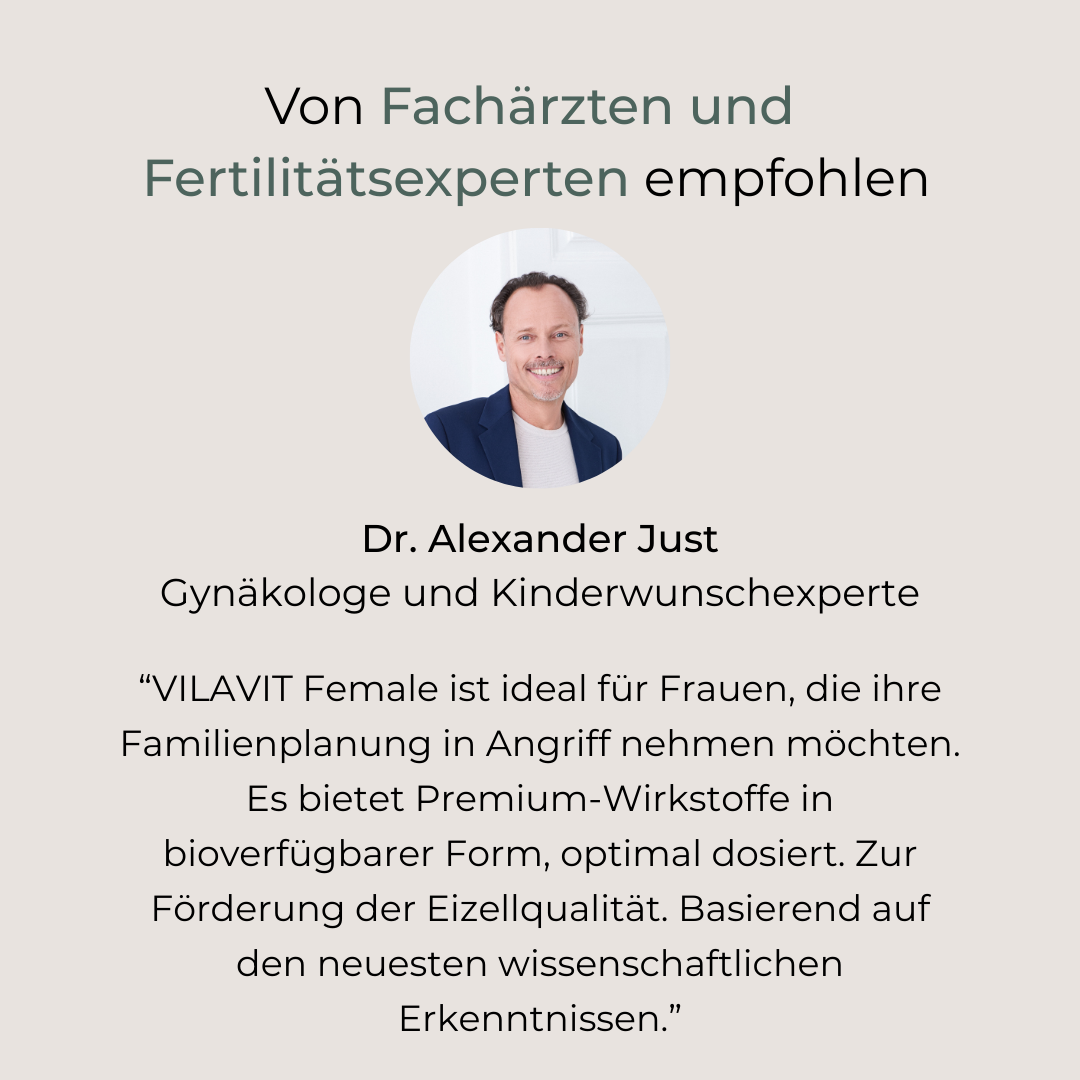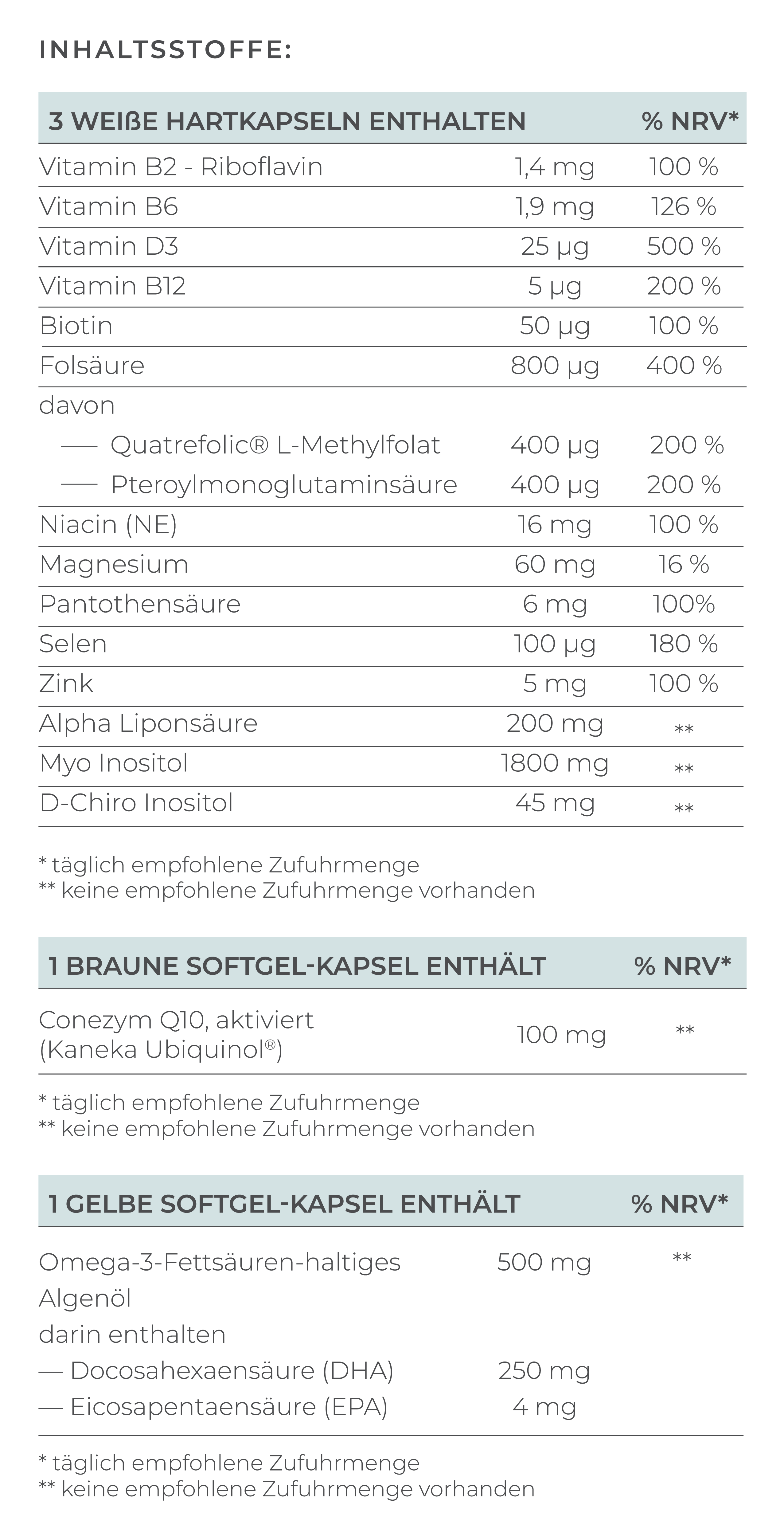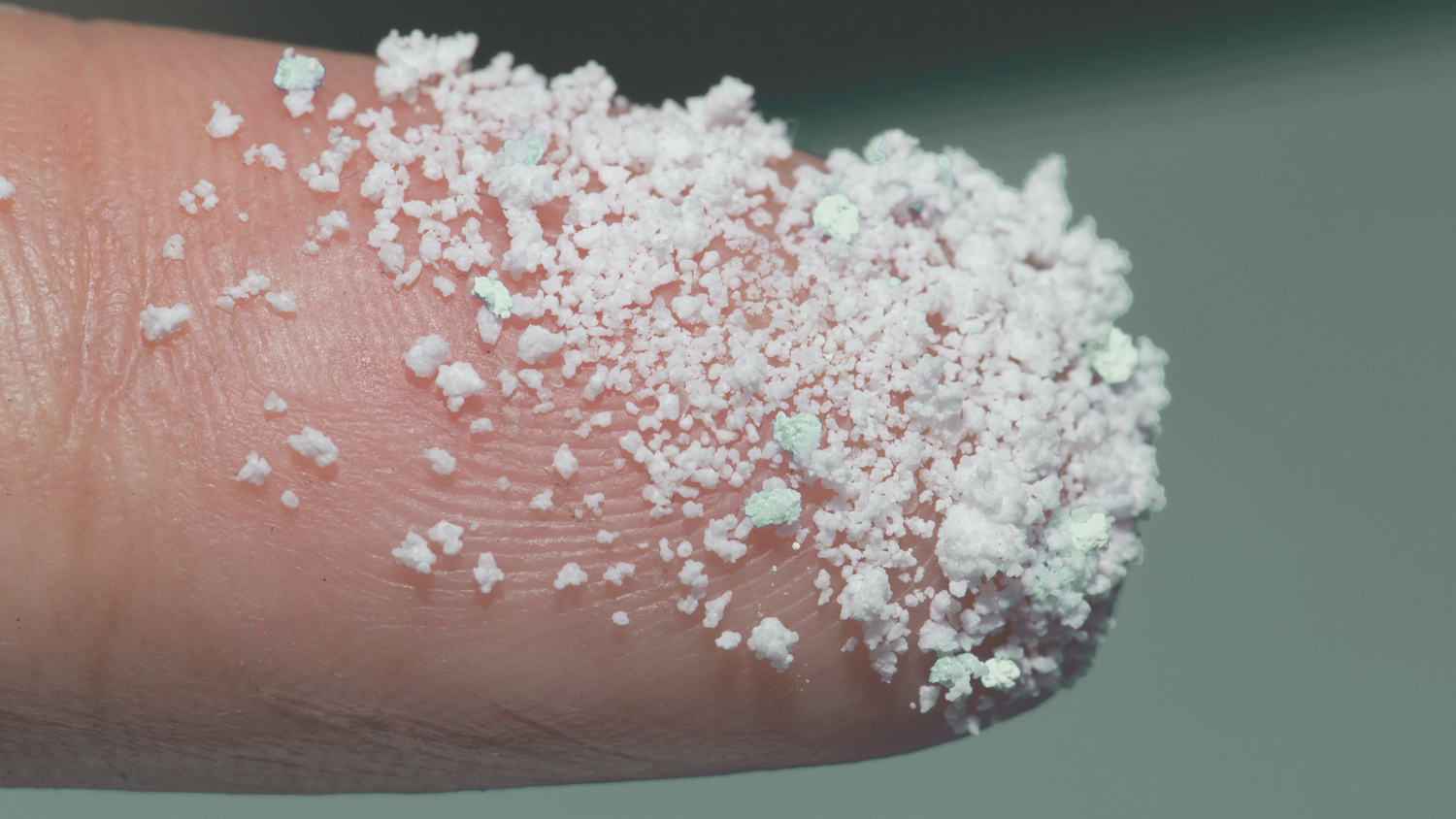Key Points at a Glance
- Irregular periods can indicate hormonal imbalances or underlying health issues.
- Causes of irregular cycles can be varied.
- Anovulation refers to the absence of ovulation.
- Irregular cycles make it harder to predict ovulation.
- Treatment options include medication, Myo-Inositol, and lifestyle changes.
-
A visit to the doctor is recommended if you have cycle irregularities.
Irregular period while trying to conceive
A regular menstrual cycle is a sign of a well-functioning hormonal system and normal ovulation. However, an irregular cycle can make it difficult when trying to conceive.
Irregular periods can indicate hormonal imbalances or underlying health problems. In this article, we take a look at the causes, their effects on fertility, and the significance of anovulation.
What Does an Irregular Period Mean?
A normal menstrual cycle typically lasts between 21 and 35 days. However, if cycles are consistently longer, shorter, or fluctuate greatly, this is considered an irregular period.
The causes of irregular periods are diverse, ranging from harmless fluctuations to more serious health conditions.
Common Menstrual Disorders
- Absent cycle (Amenorrhea)
- Shortened cycle (Polymenorrhea)
- Prolonged cycle (Oligomenorrhea)
- Light bleeding (Hypomenorrhea) with less than 25 ml
- Heavy bleeding (Hypermenorrhea) with more than 80 ml
- Prolonged bleeding lasting 8 days to two weeks (Menorrhagia)
- Spotting or breakthrough bleeding (Metrorrhagia or Menometrorrhagia)
What Causes Irregular Periods?
- Hormonal Imbalances: Fluctuations in estrogen and progesterone, which regulate the menstrual cycle, can disrupt it.
- Polycystic Ovary Syndrome (PCOS): One of the most common causes of irregular periods. In PCOS, many small follicles form, but none mature into a dominant follicle, causing irregular cycles. Women with PCOS often have elevated male hormones (androgens), leading to cycle irregularities and anovulation, along with symptoms like acne or oily skin. Studies show that 85-90% of women with PCOS experience irregular periods (Harris et al., 2017).
- Thyroid Disorders: Both hypothyroidism and hyperthyroidism can affect the menstrual cycle. Thyroid hormones are crucial in metabolism and hormone regulation.
- Premature Ovarian Reserve Depletion: As the ovarian reserve declines, periods may become irregular or stop altogether. Anti-Müllerian hormone is an indicator of ovarian reserve.
- Stress: Physical and emotional stress can disrupt the hypothalamus-pituitary-gonadal axis, which controls the menstrual cycle.
- Weight Fluctuations: Significant weight gain or loss, such as with anorexia, can impact hormonal balance and cause irregular periods.
- High Prolactin Levels (Hyperprolactinemia): Elevated prolactin levels can inhibit ovulation. Stress, tumors, or certain medications can cause this.
- Insulin Resistance: Insulin resistance can lead to hormonal imbalances affecting the menstrual cycle.
- Discontinuing Hormonal Birth Control: After stopping birth control pills, it may take time for the body to return to its natural hormone production and cycle regulation.
How Can Irregular Periods Affect Fertility?
A regular period often indicates that ovulation is occurring. Irregular cycles, however, may suggest that ovulation (anovulation) is not taking place. Studies have shown that women with irregular cycles (>10 days deviation from a normal cycle) have a 25% lower chance of getting pregnant naturally because predicting ovulation is more difficult (Kolstad et al., 1999).
What is Anovulation?
Anovulation refers to the absence of ovulation, meaning no egg is released for fertilization. Women with anovulatory cycles may either have no menstruation or very irregular periods. Anovulation is one of the most common causes of female infertility. Around 30% of infertility cases in women are caused by anovulation (Balen et al., 2007).
Signs of Anovulation:
- Very irregular or absent periods
- Dramatic fluctuations in menstrual flow
- Spotting between periods
- Persistent acne or unexplained weight gain, often associated with PCOS
Can You Get Pregnant with Irregular Periods?
Pregnancy is still possible with an irregular cycle, but it can be more challenging to calculate the optimal time for conception. In a regular cycle, ovulation occurs about 14 days before menstruation. With an irregular cycle, the timing of ovulation can vary, making it harder to determine the fertile window.
However, if no ovulation occurs or no egg is released, fertilization and pregnancy are not possible.
What Can Be Done About Irregular Periods and Anovulation?
The treatment for irregular periods and anovulation depends largely on the underlying cause. In many cases, lifestyle changes such as weight management, stress reduction, and a healthy diet can help regulate the cycle.
Women with PCOS often benefit from insulin sensitization using Myo-Inositol or Metformin.
Treatment Options Include:
- Medication: Clomiphene and Letrozole are commonly used to stimulate ovulation in women with anovulation. Studies show these medications can induce ovulation in up to 90% of cases (Nestler et al., 1998).
- Lifestyle Changes: Weight loss in overweight women can improve ovulation and cycle regularity. A diet with a daily intake of 1,000 to 1,400 kcal may normalize the cycle (Jarrett et al., 2016).
Conclusion
Irregular periods can be a sign of serious hormonal imbalances or other health issues, often linked to anovulation, a leading cause of female infertility. Women with cycle irregularities should not only focus on a balanced diet and healthy lifestyle but also consider addressing any underlying conditions.
FAQ
I have irregular periods, when should I see a doctor?
Irregular cycles should definitely be medically evaluated, especially if you are trying to get pregnant. The more regular your cycle, the easier it is to predict ovulation, increasing your chances of pregnancy.
When is my ovulation during an irregular cycle?
In irregular cycles, it's not always clear if ovulation is happening. In some cases, ovulation may not occur at all (anovulation), which significantly reduces the chance of pregnancy.
To confirm ovulation, various methods can be used, such as ovulation tests, cycle tracking, basal temperature measurement, or regular ultrasounds with a gynecologist.
I’m 40 and have irregular periods, can I still get pregnant?
Pregnancy is still possible at 40, but fertility declines with age, and an irregular cycle can make conception more difficult. Irregular periods at this age may indicate the onset of perimenopause (the transition before menopause) or hormonal imbalances affecting ovulation.
If trying to conceive at 40, it’s advisable to consult a specialist.
How long does an irregular cycle last after a miscarriage?
After a miscarriage, it can take several weeks to months for the cycle to normalize, and it’s common for the cycle to be irregular during this time. The duration of irregularity varies by individual and depends on factors like hormonal levels, the nature of the miscarriage, and overall health.
Are there alternative approaches to promote a regular menstrual cycle?
Vitex agnus-castus (Chaste tree) is an herb traditionally used to support hormonal balance. Studies suggest Vitex may help regulate the cycle by affecting the hormonal system. However, for complex cycle disorders, conventional medications may be necessary.
References
Balen AH, Rutherford AJ. Managing anovulatory infertility and polycystic ovary syndrome. BMJ. 2007




